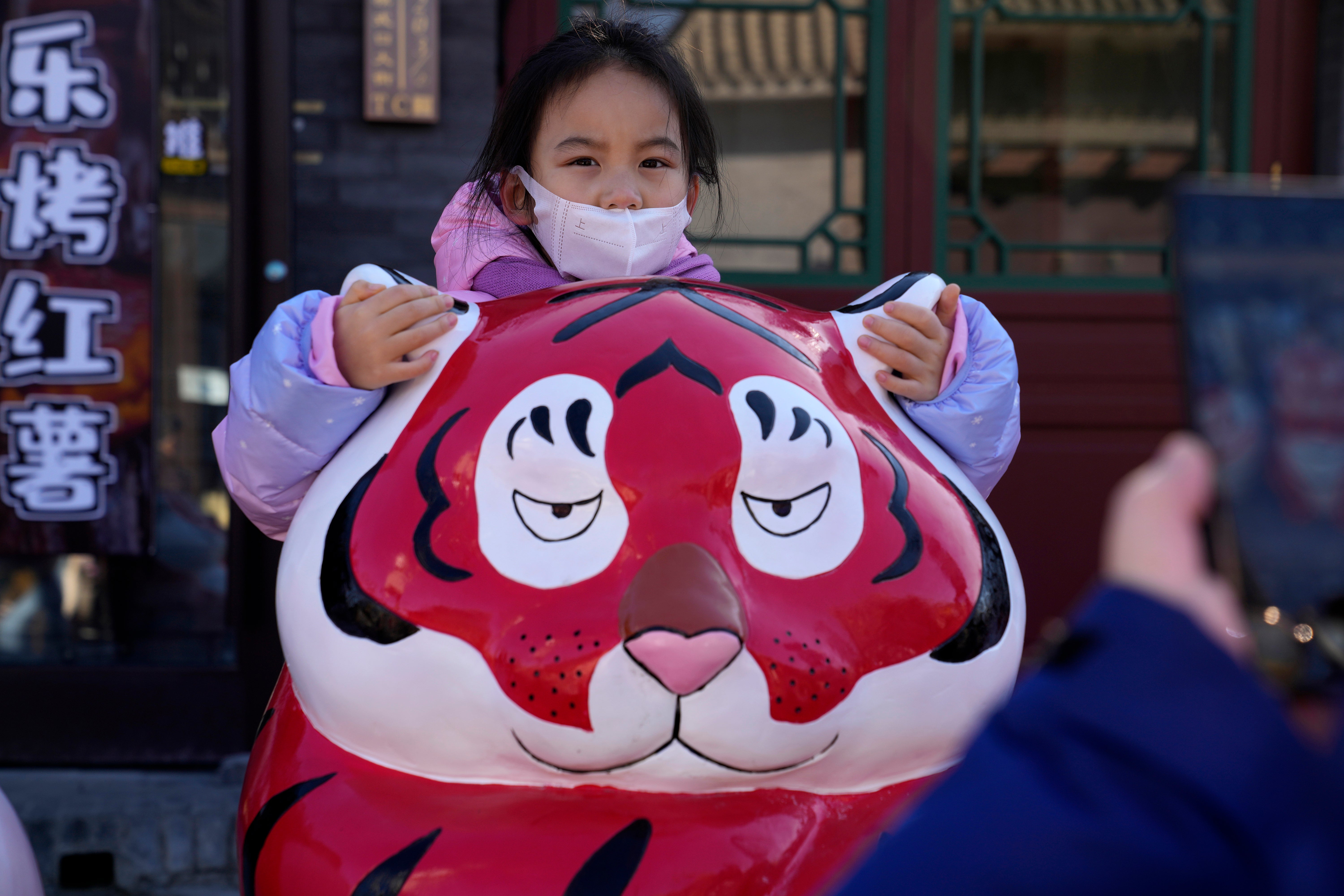On Lunar New Year, Chinese pray outside shut temples
China is ringing in the Lunar New Year despite pandemic restrictions, as people gathered outside closed temples offering traditional prayers for the Year of the Tiger

Your support helps us to tell the story
From reproductive rights to climate change to Big Tech, The Independent is on the ground when the story is developing. Whether it's investigating the financials of Elon Musk's pro-Trump PAC or producing our latest documentary, 'The A Word', which shines a light on the American women fighting for reproductive rights, we know how important it is to parse out the facts from the messaging.
At such a critical moment in US history, we need reporters on the ground. Your donation allows us to keep sending journalists to speak to both sides of the story.
The Independent is trusted by Americans across the entire political spectrum. And unlike many other quality news outlets, we choose not to lock Americans out of our reporting and analysis with paywalls. We believe quality journalism should be available to everyone, paid for by those who can afford it.
Your support makes all the difference.Chinese people on Tuesday rang in the Lunar New Year despite pandemic restrictions, as small crowds gathered outside shut temples offering traditional prayers for the Year of the Tiger.
At the Lama Temple in Beijing dozens of people gathered to bow in prayer before the ornate west gate of the Tibetan Buddhist site that was often thronged with worshipers before the pandemic.
Wang Ying, who works at an accounting firm, said praying outside the temple was better than burning incense at home.
"I think sincerity is more important than burning incense sticks,” she said, after finishing her devotions.
Wang also said she is looking forward to the opening ceremony of the Beijing Winter Olympics on Friday. Marking the holiday, Beijing residents also took photos outside displays for the Games in the city's central Tiananmen Square
The Lunar New Year, also known as the Spring Festival, is the most important annual holiday in China Each year is named after one of the twelve signs of the Chinese zodiac, with this year being the Year of the Tiger.
This year's holiday has seen fewer people return to their hometowns for traditional family gatherings. China's strict pandemic policies can lead to the swift lockdown of towns and cities, as well as suspension of travel wherever clusters of coronavirus cases are identified.
Liu Yuetong stayed in Beijing in case her hometown had a sudden outbreak and her return to work at an ad agency was delayed.
“This is the first time I celebrate the Spring Festival in Beijing alone," she said after her prayers outside the Lama Temple. "I feel a bit lonely. But thanks to technology, I had video calls with my family almost every day.”
In Hong Kong the city's largest Taoist temple, Wong Tai Sin Temple, was closed because of the pandemic, but people gathered to burn incense sticks and offer prayers at smaller temples that remained open.
“I hope that this year is like a tiger, very energetic," said Eric Lee, a visitor to the popular Man Mo Temple. “I hope the economy and everyone’s career will be better in the Year of Tiger.”
Hong Kong had a surge of coronavirus cases in January and city officials have urged the public to avoid large gatherings. Authorities have also closed schools and banned restaurant dining after 6 p.m.
The number of worshippers at the historic Longshan Temple in Taipei, the capital of Taiwan, was significantly lower as the pandemic enters its third year. Settlers from southern China built the temple in the eighteenth century to honor Buddha. It also has altars dedicated to Taoist deities.
___
Associated Press video producer Liu Zheng in Beijing and video journalists Alice Fung in Hong Kong and Taijing Wu in Taipei, Taiwan, contributed to this report.